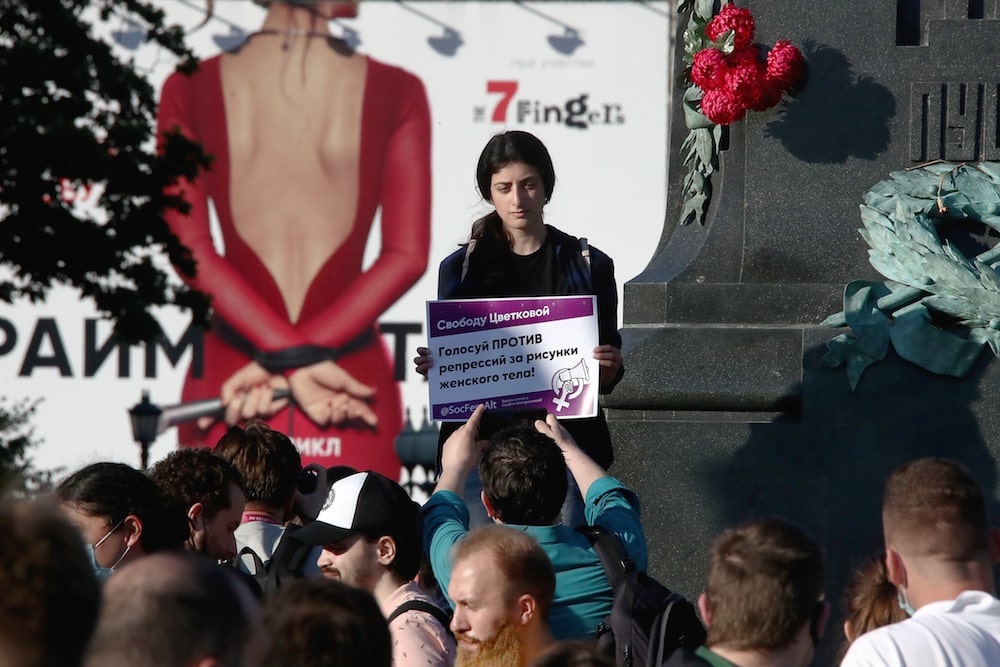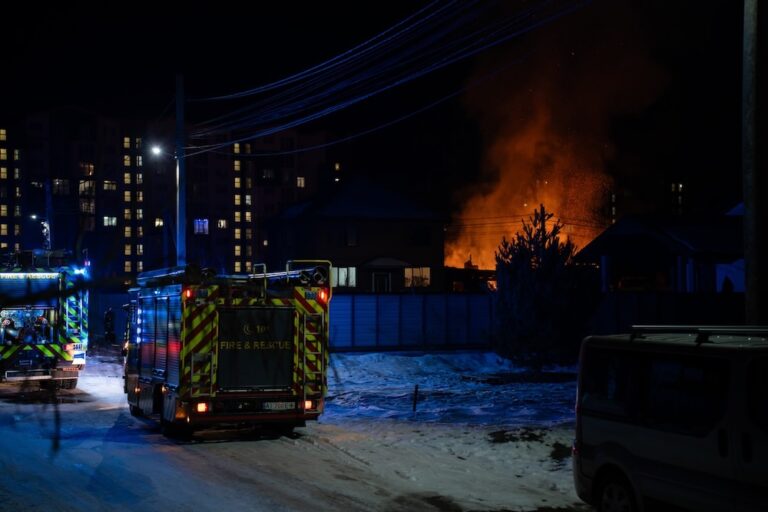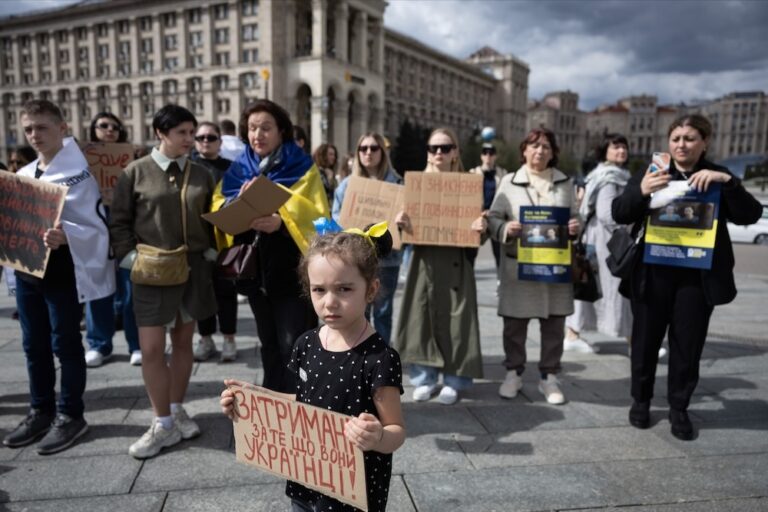Yulia Tsvetkova is charged with “pornography dissemination” because she runs a social media group that features artwork depicting vulvas, celebrating female bodies, and protesting taboos around female anatomy and menstruation.
This statement was originally published on hrw.org on 30 June 2020.
Police in Moscow detained 40 people last weekend for holding peaceful protests in solidarity with a young woman who is facing up to six years in prison for running a feminist blog.
On June 9, authorities in Komsomolsk-on-Amur, in Russia’s far east, officially charged Yulia Tsvetkova with “pornography dissemination.” Tsvetkova runs a social media group that features artwork depicting vulvas, celebrating female bodies, and protesting taboos around female anatomy and menstruation. Tsvetkova was put under house arrest in November 2019 and released in March – subject to a travel ban – pending investigation. Her indictment three months later has sparked a vigorous campaign defending her, including protests, and social media flash mobs that has gained significant media support.
On June 27, the national day of youth in Russia, over 50 media outlets organized a “Media Strike for Yulia,” demanding Tsvetkova’s prosecution be stopped. Writers, journalists, actors, influencers, and bloggers published posts under the hashtag #forYulia (#заЮлю) and #FreeJuliaTsvetkova (#СвободуЮлииЦветковой). Close to 233,000 people signed an online petition calling on authorities to drop the case against her.
As a part of the campaign, activists in central Moscow held single person pickets. Law enforcement officers approached people waiting their turn to picket, carrying rolled up posters proclaiming [the] “Female body is not pornography” and “Free Yulia Tsvetkova” and dragged them into police vans. OVD-info, a Russian group that provides legal aid to victims of arbitrary arrests, reported that police detained at least 40 people, charging most of them with violations of public gatherings regulations, including the ban on mass events introduced in March in response to the Covid-19 pandemic.
According to Russia’s law on public gatherings, there is no requirement to notify authorities before holding a solitary picket. Russian ombudswoman Tatyana Moskalkova told the Council of Europe Human Rights Commissioner this month that single protests should not be viewed as mass gatherings, even during the Covid-19 pandemic.
Tsvetkova’s only crime is to be a free thinker. She is paying far too high a price for being a feminist and a lesbian, gay, bisexual, and transgender (LGBT) rights activist and exercising her right to artistic expression guaranteed by Russia’s own Constitution and international human rights law. Instead of punishing her supporters, Russian authorities should immediately drop all charges against her.



